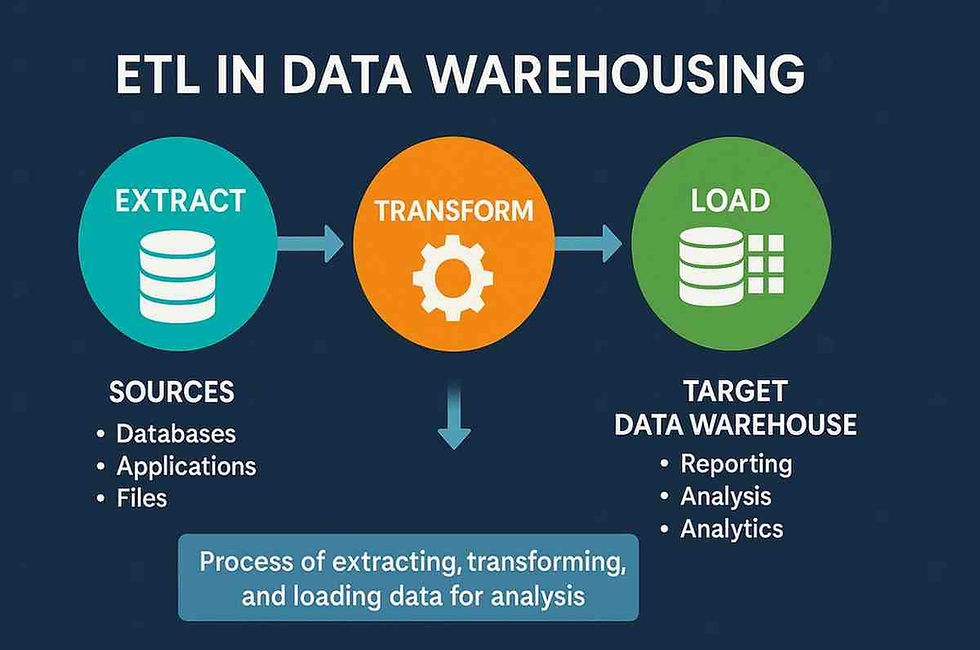SW Quality: 5 Reasons Why Software Quality Matters for Business
- Gunashree RS
- Sep 12, 2024
- 6 min read
Introduction
In today’s fast-paced digital world, software quality (SW quality) plays a pivotal role in determining the success or failure of a business. Whether you are developing an app, managing a cloud platform, or maintaining enterprise software, the quality of your product is what sets you apart from the competition. High-quality software enhances user experiences, ensures reliability, and increases customer retention, while poor-quality software can lead to dissatisfied customers, damaged reputations, and ultimately, lost revenue.
But why exactly does SW quality matter so much? While most people understand that customers prefer software that works seamlessly, the implications of software quality go much deeper. This article outlines five key reasons why software quality is critical to business success, including how it affects predictability, reputation, employee morale, customer satisfaction, and, of course, the bottom line.

What Is SW Quality?
SW quality refers to the degree to which a software product meets the specified requirements and satisfies user expectations. It is not just about the absence of bugs but encompasses usability, performance, security, and reliability. Good software quality means fewer errors, lower maintenance costs, happier customers, and a smoother development lifecycle.
Software quality can be assessed based on several key factors:
Functionality: Does the software perform the required tasks?
Usability: Is the software easy to use for the target audience?
Reliability: Can the software run without failure under specific conditions?
Efficiency: Does the software operate quickly and use resources optimally?
Security: Does the software protect data and resist attacks?
By focusing on these factors, businesses can deliver superior products, enhance customer trust, and gain a competitive advantage.
1. SW Quality Drives Predictability
Predictability is one of the most important reasons businesses should prioritize SW quality. In a highly competitive market, ensuring that projects are completed on time and meet quality standards is essential for success. By focusing on quality from the outset, teams can avoid rework, delays, and miscommunication, leading to smoother development cycles and on-time delivery.
Here’s how SW quality enhances predictability:
Less Rework: High-quality software reduces the need for constant rework. When software is built correctly from the start, teams can focus on new features rather than fixing bugs.
Improved Productivity: With fewer errors to address, teams can work more efficiently and meet deadlines consistently.
Reduced Variability: SW quality provides stability in development timelines, making it easier to forecast and plan for future releases.
Minimized Downtime: Predictable software reduces the risk of downtime or failure during crucial periods, enhancing user trust and maintaining business continuity.
Poor-quality software, on the other hand, often leads to unexpected issues, resulting in delays, missed deadlines, and an increase in project costs.
2. SW Quality Impacts Reputation
Your company’s reputation is one of its most valuable assets, and SW quality directly influences how your customers and stakeholders perceive you. In an era where customer reviews and social media play a crucial role in business success, delivering low-quality software can significantly damage your reputation.
Here’s how high SW quality can enhance your company’s reputation:
Brand Trust: Companies known for producing reliable, high-quality software foster trust among their customers. This trust becomes part of the company’s brand identity and encourages customer loyalty.
Customer Referrals: Satisfied customers are more likely to recommend your software to others, amplifying word-of-mouth marketing and bringing in new customers.
Positive Reviews: Quality products often lead to positive reviews on social platforms and third-party sites, which influences purchasing decisions.
Industry Standing: Companies with a reputation for quality often gain recognition within their industry, attracting better partnerships, top talent, and more business opportunities.
However, a single software failure can tarnish even the best reputations. Think of major product recalls or data breaches; these incidents can cause long-term harm to a company’s image and customer loyalty.
3. SW Quality Elevates Employee Morale
Beyond customers, SW quality has a profound impact on your internal teams, especially your developers, testers, and customer support staff. When employees take pride in their work, knowing they are producing high-quality software, it boosts morale, productivity, and job satisfaction. On the flip side, low-quality software can create a stressful work environment, leading to burnout and turnover.
Here’s why SW quality is essential for employee morale:
Pride in Work: Employees who know they are working on a high-quality product are more motivated and engaged. They feel a sense of accomplishment when delivering a successful product.
Reduced Stress: Constantly fixing bugs, dealing with dissatisfied customers, or reworking poor code can lead to frustration and stress among team members. High-quality software reduces the need for such fixes, creating a more positive work environment.
Collaboration: Teams working on a well-structured, high-quality project are more likely to collaborate effectively, sharing ideas and solutions rather than firefighting issues.
Employee Retention: Companies that focus on quality tend to have lower employee turnover. Talented developers want to work on projects that challenge them intellectually, not ones that are constantly bogged down by errors.
When employees are motivated and happy, they are more productive, innovative, and committed to the company’s goals. This translates into better products and a healthier work culture.
4. SW Quality Ensures Customer Satisfaction
At the heart of every business is the customer, and customer satisfaction is directly tied to SW quality. A well-built, reliable product delights users, increases loyalty, and keeps them coming back for more. Conversely, poor-quality software results in complaints, refunds, and lost customers.
Here’s how SW quality drives customer satisfaction:
Fewer Bugs: High-quality software reduces the number of bugs and issues users encounter. A product that works as expected with minimal glitches creates a smoother user experience.
Positive User Experience: Software that is intuitive, fast, and reliable enhances the overall user experience, encouraging continued use and reducing churn.
Increased Loyalty: Satisfied customers are more likely to remain loyal, purchase additional services, and provide valuable feedback for future improvements.
Word-of-Mouth Referrals: Happy customers are your best marketing tool. They will likely recommend your software to others, helping you grow your user base organically.
On the flip side, customers are quick to voice their dissatisfaction when software fails to meet expectations. With the rise of social media, a single bad experience can quickly go viral, impacting your business’s reputation and future sales.
5. SW Quality Directly Impacts the Bottom Line
Finally, the impact of SW quality on a company’s bottom line cannot be overstated. High-quality software leads to reduced costs, higher revenue, and improved profitability in several ways:
Reduced Support Costs: Fewer bugs mean fewer support tickets and reduced time spent by customer service teams troubleshooting issues.
Lower Maintenance Costs: High-quality software is easier to maintain and scale, reducing long-term maintenance expenses.
Faster Time-to-Market: With fewer rework cycles and bugs, development teams can release products faster, enabling the company to stay ahead of the competition.
Increased Sales: Quality products often attract more customers and increase upsell opportunities, directly contributing to revenue growth.
Fewer Refunds: Poor-quality software can result in increased refund requests, leading to revenue loss and increased operational costs.
By focusing on SW quality, businesses can improve operational efficiency, reduce long-term expenses, and generate higher revenue—all of which contribute to a healthier bottom line.
Conclusion
In a world where software is a critical component of almost every business, SW quality is not just a “nice to have” but an absolute necessity. It influences every aspect of your business, from predictability and reputation to employee morale, customer satisfaction, and profitability. Poor software quality can lead to lost customers, decreased employee engagement, and costly errors, while high-quality software ensures success and long-term business growth.
By prioritizing software quality and implementing best practices throughout the development lifecycle, businesses can position themselves for sustained success in a highly competitive market. Whether you’re building an app or managing enterprise-level systems, SW quality should be at the forefront of your strategy.
Key Takeaways
Predictability: High-quality software reduces rework and enhances project predictability.
Reputation: Software quality builds trust and enhances a company's reputation, driving customer loyalty.
Employee Morale: Working on quality software boosts morale, and productivity, and reduces turnover.
Customer Satisfaction: Satisfied customers return and spread positive feedback, while poor-quality products risk losing customers.
Bottom Line: SW quality reduces maintenance costs, increases revenue, and improves overall profitability.
FAQs on SW Quality
1. What is SW quality?
SW quality refers to how well a software product meets its requirements and satisfies user expectations in terms of functionality, usability, reliability, and performance.
2. Why is SW quality important for business success?
SW quality ensures customer satisfaction, reduces costs, improves employee morale, builds a strong reputation, and directly impacts a company's bottom line.
3. How does SW quality affect predictability?
High-quality software leads to fewer errors and less rework, resulting in more predictable project timelines and reduced variability in performance.
4. Can poor SW quality damage a company's reputation?
Yes, delivering low-quality software can lead to negative reviews, customer churn, and a tarnished brand reputation, which is difficult to recover from.
5. How can improving SW quality boost employee morale?
When employees work on high-quality projects, they take pride in their work, leading to higher morale, increased productivity, and lower turnover rates.
6. What are the financial benefits of SW quality?
SW quality reduces support costs, minimizes maintenance efforts, and increases sales, contributing to a healthier bottom line for the business.




Comments